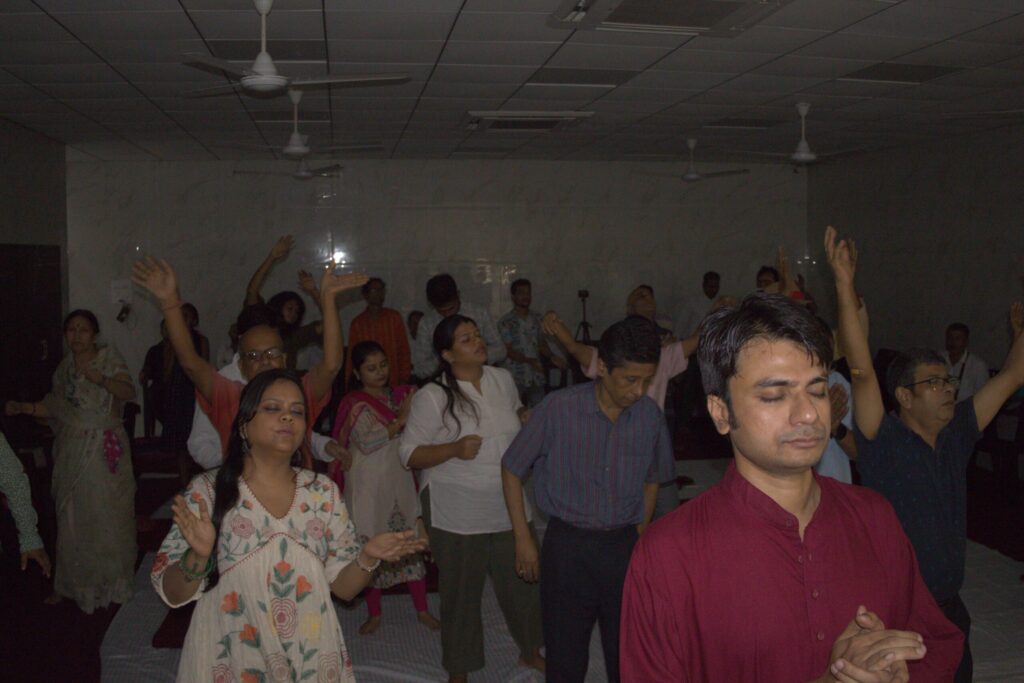Kirtan Movement

Kirtan is a devotional practice in Hinduism, Sikhism, and some forms of Buddhism, where participants gather to sing or chant mantras, hymns, or divine names in a call-and-response fashion. The term “kirtan” is derived from the Sanskrit word “kīrtana,” which means “praise” or “glorification.”
Key features of kirtan include:
Call-and-Response Singing: Kirtan involves a lead singer or group singing or chanting a line or phrase (call), which is then responded to by the assembled group (response). This creates a rhythmic and melodic flow that continues throughout the session.
Devotional Content: The lyrics of kirtan are often devotional, expressing love, praise, and surrender to a particular deity or a divine concept. Common themes include the names of gods or goddesses, stories from religious scriptures, and expressions of spiritual devotion.
Instrumentation: Traditional kirtan is accompanied by musical instruments such as harmonium, tabla, mridangam, kartal, and sometimes guitar or other instruments depending on the cultural and regional context. The instruments provide a rhythmic and melodic backdrop to the chanting.
Repetition of Mantras: Mantras, sacred sounds or syllables with spiritual significance, are frequently repeated in kirtan. The repetition is believed to have a transformative and meditative effect, helping participants focus their minds and deepen their spiritual connection.
Community Participation: Kirtan is often a communal and participatory practice. People of various backgrounds and ages come together to share in the collective experience of chanting and singing, fostering a sense of unity and spiritual connection.
Spiritual Upliftment: Practitioners believe that engaging in kirtan can lead to spiritual upliftment, emotional healing, and a sense of inner peace. The repetitive nature of chanting is thought to quiet the mind and create a meditative state.
Variety of Styles: Kirtan can take on various styles and traditions. For example, in Hinduism, there are traditional bhajans and kirtans associated with different deities. In Sikhism, Kirtan refers to the singing of hymns from the Guru Granth Sahib, the central religious scripture.
Global Influence: Kirtan has transcended its cultural and religious origins and gained popularity worldwide. Many non-traditional forms of kirtan, often influenced by Western musical styles, have emerged, attracting diverse audiences.
Kirtan is a dynamic and inclusive practice that can be experienced in various settings, from temple ceremonies to informal gatherings and music festivals. It is a celebration of spirituality through sound, fostering a sense of community and connection with the divine.
